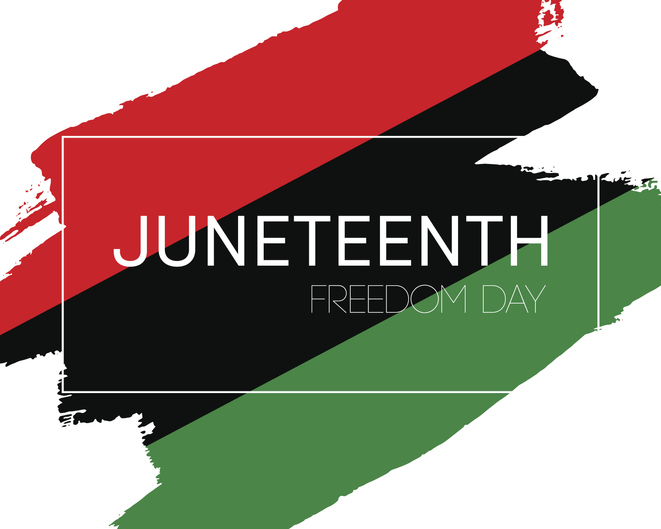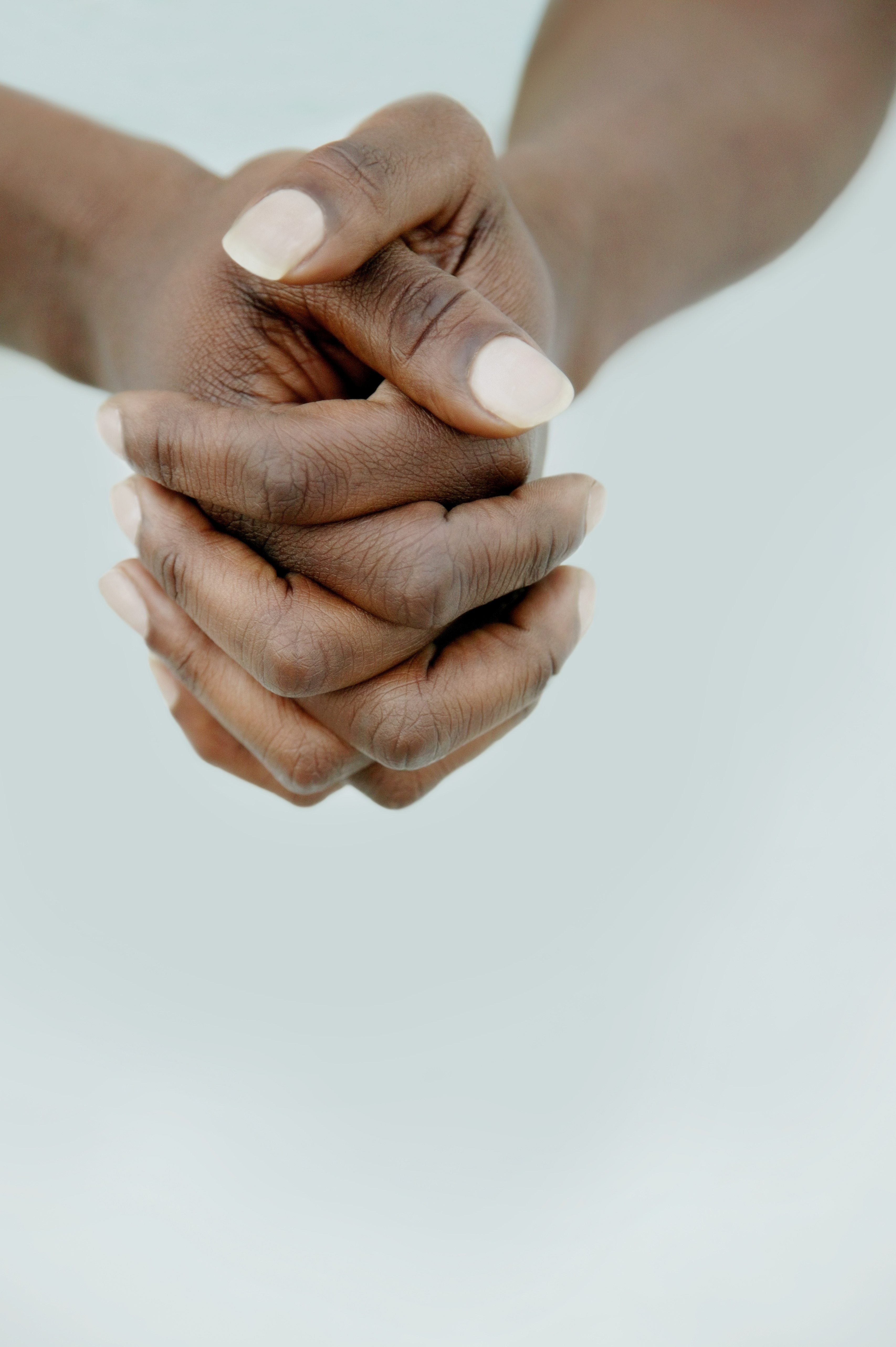AARP Hearing Center
Juneteenth, an annual holiday commemorating the end of slavery in the United States, has been celebrated by African-Americans since the late 1800s. But this year, following nationwide protests over police brutality and racial injustices, there is renewed and more widespread interest in this day that celebrates freedom.
To bring perspective to this 155-year-old celebration, AARP Texas Communications staff reached out to a leader at AARP for insights on the holiday of June 19.

Rawle Andrews Jr., a Houston native, long-time lawyer, and a regional vice president for AARP who coordinates the Association’s work in the seven-most-populous states in the country, including Texas, often brings a historian’s viewpoint to his work.
We spoke to Mr. Andrews about the history of Juneteenth, the shifting politics of race, his own experiences, and where this movement can go in the future. But, first, here’s a little of what you should know about Juneteenth.
What is Juneteenth?
Juneteenth commemorates June 19, 1865, the day when Union soldiers arrived in Texas and read the Emancipation Proclamation announcing that slaves had been freed. Texas was the last of the Confederate states to officially receive the news. Juneteenth received its name by combining June and 19. The day is also sometimes called “Freedom Day,” “Emancipation Day,” “Jubilee Day, “Liberation Day,” and “America’s Second Independence Day.”
How is it celebrated?
The day has long been celebrated by praying and bringing families together. Today, some celebrations take place among families in backyards where food is an integral element. And some cities hold larger events, including parades and festivals. In 1980, Texas became the first state to designate Juneteenth as a holiday. Since then, 45 other states and the District of Columbia have moved to officially recognize the day. It has fallen short, however, of becoming a recognized national holiday despite various efforts in Congress to do so.
Below are lightly edited and slightly reordered excerpts from our conversation with Mr. Andrews.
What does Juneteenth mean to you and what is its real significance for today?

“I do believe Juneteenth symbolizes freedom in all of its forms. At the highest level, what liberty means to anybody. And at the low level, what are the costs of freedom. On July 4, 1776, we have a Declaration of Independence, and at that time, enslaved African Americans were not considered human. They were not considered people. And then, when you get to January 1863, you have President Abraham Lincoln establishing the Emancipation Proclamation. But it takes two-and-a-half years for that word, and the enforcement, to make its way to Texas.
“I know we didn’t have social media back then. The telegraph hadn’t been developed. But there were over 250,000 enslaved African-Americans who were still laboring without word that the Emancipation Proclamation had happened.”
Do you see parallels between that slow pace of information about the emancipation with the pace of civil rights progress?
“It is a common axiom that everybody loves progress and everybody hates change. Depending on how you roll out the steady drumbeat of freedom, there’s a little bit of what you see between January 1863 and June of 1865.
“What I celebrate today about the evolution and spirit of freedom is a remembrance of when I was a youngster growing up. I thought Juneteenth really was a Texas holiday. And I was a little proprietary about whether somebody from another state really could be allowed to celebrate Juneteenth. But I’ve come to realize that that yearning for liberty, for justice for all, it shines bright. And in Juneteenth, it becomes a beacon for people of all walks of life.”
At a moment like this, with a national conversation about diversity, racism and police brutality going on, what’s your message to others at AARP and to all those we serve?
“Thurgood Marshall said during his time as a member of the U.S. Supreme Court that we always have to start with, `What is the quality of your intent?’ If you intend to do good, you almost always will. If you intend to do harm, it will happen.
“Nothing has happened over the last few weeks that is necessarily new to African Americans in the United States. But it is much easier to see it because we have social media and hand-held devices to spread it around.
“What I have been heartwarmed by is the unanimity of cultural response to what is happening in America today. It is not just one minority or ethnic group. It is truly a rainbow coalition of folks who want to see America be as good as its people.”
Far more than ever, people of all walks of life are saying that black lives matter. What do you make of that?
“Historically, you only had African-Americans or non-African-American historians who were making any statements about the state of black America or the state of America when it comes to race. We’ve struggled about this issue of race throughout the centuries. I don’t think this Juneteenth is going to change that. But we have a broader coalition of folks who are not only looking at the issue of race in America but also looking at how they devote themselves to the issue of race.”
How will you and your family celebrate Juneteenth this year?
“This year will be like no other. I’ll be tethered to my immediate family. We’ll do something. But I’m sure it won’t be that profound because we’re in a global pandemic. I want to see Juneteenth next year. We’ll probably do something on Zoom and take some time to observe how far we’ve come and how must further we must go.”
Do you have thoughts on how this can be an even more inclusive holiday?
“I would say, yes, it could be a national holiday. But I think part of the challenge is that holidays and monuments only go so far. Yes, I’d love to use it as a teachable moment so that both African-Americans and those who are not in the African-American community can have an educational center to talk about the issues of race, equity and inclusivity.”
Juneteenth is an occasion to speak out. What needs to be better understood?

“Everybody is a product of their DNA and their environment. My social DNA starts with some folks. My great-grandparents were slaves who were born into slavery. My grandmother was free but always considered herself colored. For her whole time on earth, she believed she was a second-class citizen.
“There’ racism, but there also is place-ism. Place-ism isn’t about who you are. It’s about being able to go where you should or should not go. Place-ism is a notion that we have not yet talked a lot about. It’s driven by some issues of race and geography. It really is more about how you’re not one of us so you don’t belong here. And if you come here, we’re either not going to make you comfortable or were going to go out of our way to make you uncomfortable because you’re not in the right place.“It’s like Driving While Black. You seem out of place, therefore, there’s reason to be suspicious. It’s always one of the reasons why my manner of dress tends to be more formal than modern-day custom. I dress in black and white (suit and tie) largely because I am aware of The Talk (the conversation some African American parents have with youth about being wary of police intrusion)…
So, you wear a suit often just for your safety in public?
“Yes, it is armor. I go out of my way to look as presentable as I can. If I’m on the road, I’m in a suit and tie and dressed in black and white just in case something happens.”
You have favorite quotes that pertain to Juneteenth, right?
“Ben Franklin said, `Justice will not be served until those who are unaffected are as outraged as those who are affected.’ “I’ll give you the Ben Franklin quote, but Maya Angelou famously observed that `hate has caused a lot of problems in the world, but it has not solved one yet.’
“And Nelson Mandela equally said: “It always seems impossible until it’s done.
“The combination of those three quotes gives us a path to stay on. The path toward equality and justice for all.”































































